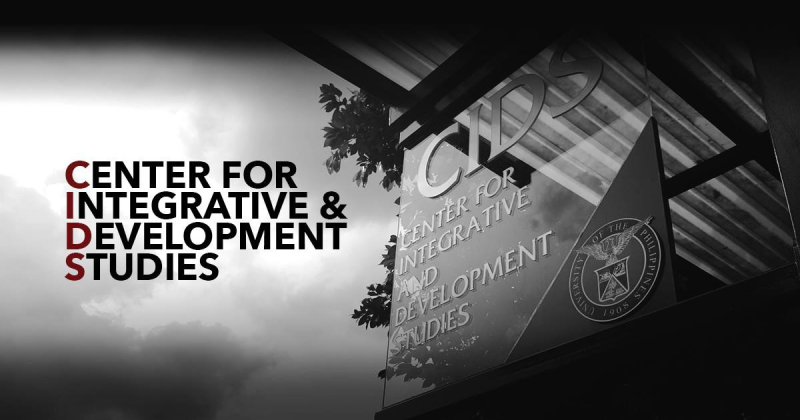Explore New Policies: Download All 41 UP CIDS Policy Papers in 2022

In 2022, the University of the Philippines Center for Integrative and Development Studies (UP CIDS) published 41 non-peer-reviewed publications, emanating from the projects and activities of the Center’s 12 research programs.
From policy briefs and proceedings to monographs and discussion papers, the publications cover a variety of fields or topics: education, political economy, labor, tourism, healthcare, foreign investment, democracy and gender, among many others.
Browse the titles below and click on the titles to download!
Policy Briefs
- The Informal Labor Carries the Brunt of a COVID-19–induced Economic Recession: The Need for Stronger Transition Policies to Formality
- How the Philippines Could Pave the Way for a Minilateral Arrangement: Policy Directions for a Philippine-led South China Sea Minilateral Initiative
- Reviewing Contentions of Authority and Legitimacy in Philippine Halal Development Initiatives
- Understanding Learners’ Home Contexts and Recommendations for Future School Scenarios
- The Legal and Institutional Ecosystem of Halāl in the Philippines
- Waste Heat Recovery and Energy Efficiency for Small and Medium Power Users
- Tax the Rich! Nine Reasons for a Wealth Tax
- Minilateralism on the South China Sea Dispute: The ASEAN Minus “X” Plus 1 Equation
- Retrofitting Small Marine Vessels for Range Extension and Emissions Reduction
- The Pole Star of Social Democracy Has Burnt Out, What Should We Do Now?
- Role of Institutions, Investment Policies, and Macroeconomic Conditions on Attracting Foreign Investments
- Refuting Objections to a Wealth Tax
- Dealing with the Deficit of Primary Health Care Workers
- Recommendations for the Indigenous People’s Rights Act (IPRA) of 1997: Recentering Indigenous Communities and Organizations
- Operationalizing Halal Food and Beverage for Philippine Tourism
Discussion Papers
- Special Economic Zones and Local and Indigenous Communities: Evaluating the Clark Special Economic Zone
- Rebuilding MSMEs in the Time of the Pandemic and Beyond
- Interrogating ZAMBASULTA Education Institution Mechanisms in the New Normal
- Future-Proofing Philippine Agriculture and Food Systems: Lessons from the Covid-19 Pandemic
- Promoting Gender Equality and Women Empowerment Among Vulnerable Groups in the Philippines
- Pasadang Pandemic: The Impact of COVID-19 on Transport Workers
- UP’s Pandemic Response
- Impact of COVID-19 on Education Workers and Union Responses
- Institutional Development of Muslim Education in the Philippines
Monographs
- Contemporary Issues in Philippine Higher Education
- A Philippine Perspective: Capacitating ASEAN to Address Security Issues in Southeast Asia
- Southeast Asian Peoples in Pandemic Times: Challenges and Responses
- Gibâ-Tayô: Kasaysayan ng Buhay ng Maralitang Tagalungsod ng ASAMBA
- Commentary on the Customary Law of the Sama Banguinguih of Simariki Island
- COVID-19-Related Discrimination of Workers in the Mactan Export Processing Zone during the Pandemic
- Going Against the Tide Kapunungan sa Gagmay’ng Mangingisda sa Concepcion (KGMC)
- Contentious Migrants: Transnational Protests and the Making of the Filipino Diaspora
Proceedings
- Solidarity for the Peoples of Burma/Myanmar: Situations, Solidarity Messages, Protest Songs, and Noise Barrage
- Philippine Public Policy in a Time of Pandemic: Confronting the COVID-19 Challenge
- Asia Europe People’s Forum 13
- Proceedings of the Training of Trainers and Enhancing Madaris Teachers’ Support System in the Municipality of Jolo, Sulu
- The Katipunan Dialogue: A Podcast Series on Politics and International Relations
- Higher Education in EDCOM 2: Going Global?
- Muslim Education Webinar on Essential Knowledge: Proceedings
- Globalization in Asia: Is It Better to Emerge or Retreat
- The Philippine Halal Landscape
View the database and download other policy papers.
About UP CIDS
The UP Center for Integrative and Development Studies (UP CIDS) is a policy research unit of the University that is mandated to encourage collaborative and rigorous research addressing issues of national significance. Currently, it has twelve Research Programs.